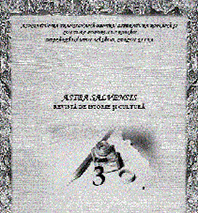Interpretând câştigurile din impuls.Cuvintele - noua armă a secolului XXI
INTERPRETING GAINS MOMENTUM. WORDS – THE NEW WEAPON OF THE 21ST CENTURY
Author(s): Mihaela TălpaşSubject(s): Language and Literature Studies
Published by: Asociaţiunea Transilvană pentru Literatura Română şi Cultura Poporului Român - ASTRA
Keywords: war; diplomacy; interpreting; armed conflicts
Summary/Abstract: Whether referring to negotiation in diplomacy or trade – local and international, to partnerships and relationships between different organisations, communities and countries, to mass media, humanitarian intervention and even – or mostly – to local and international armed conflicts, words seem to be the raw material to work with. Interpreters are among those people whose mission is to ―melt down this raw material and give it the appropriate shape in various contexts and for particular purposes; similar in a way to the job of an engineer in the glass or metal industry. Words, however, are invisible – unless they are written or recorded, in which case they attain materiality – and they can often turn into dangerous weapons, for both their producers and their receivers. The present research shall try to highlight the role of interpreters in conflict situations, in the sense of acknowledging their presence and input. This acknowledgement allows for a double perspective, namely that of the interpreters themselves and that of the users of their services, contractors and beneficiaries. It is to no surprise that there are significant gaps between the two perceptions, given that they involve a two-angle approach. Nonetheless, access to both points of view is necessary: interpreters have to be aware of their influence upon the development of events and act accordingly and their users should acknowledge the importance of interpreters in order to provide them with all the necessary conditions in order to facilitate a satisfactory professional performance. The data for this analysis comes from a corpus of online interviews and articles, specialised journals, reports and literature containing the opinions and experiences of interpreters who dealt with conflict situations and of other parties they interacted with. This will enable us to start from one objective common point – the interpreting situation – and compare the two emerging approaches – of the interpreters and of their users – in an attempt to provide possible solutions for a higher quality in interpreting, both in terms of process and product.
Journal: Astra Salvensis - revista de istorie si cultura
- Issue Year: 2014
- Issue No: 3
- Page Range: 184-191
- Page Count: 8
- Language: English

